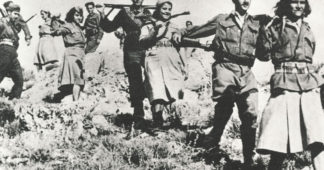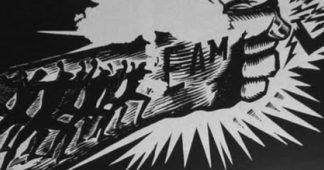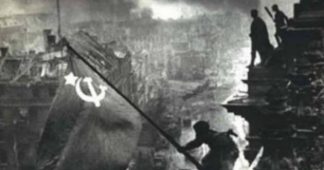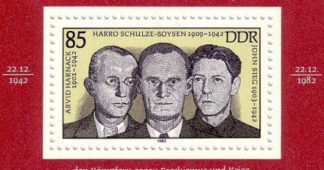The FIR always recalls the great traditions of the national resistance movements and their historical legacy. One of the most important events of the French Resistance is the creation of a common umbrella organization of all forces of armed and political resistance 80 years ago.
The French resistance against the German occupation and the Vichy regime began as early as 1940 with the German occupation. The leftist organizations had already formed their fighting units (including Francs-tireurs et partisans FTP).
General Charles de Gaulle’s appeal of June 18, 1940, also motivated conservative forces and representatives of the military to resist. However, their actions were not sufficiently coordinated in the first period. The maquis in particular maintained only a few relations with each other, and the isolation of the resistance groups prevented jointly organized, successful actions.
For this reason, de Gaulle commissioned Jean Moulin, who had served as prefect in the Aveyron department before the German invasion, to bring together the Resistance groups in France. In the spring of 1943, Moulin developed the idea of creating a kind of underground parliament where a common political program and strategy of action could be agreed upon among the various groups. All political parties and groups of the Resistance were to have seats and votes in this body. Despite its illegality, Jean Moulin achieved through many discussions that the “Conseil national de la Résistance” (CNR) met for the first time under his leadership on May 27, 1943, in an apartment in the 6th arrondissement of Paris.
The eight main Résistance movements took part: the communist Front National, the Ceux de la Libération group, the Ceux de la Résistance group, the Libération Nord, the Libération Sud, the Organisation civile et militaire, the Combat group and the Francs-Tireurs. In addition, there were representatives of the two major unions, CGT and CFDT. The CNR also included representatives of the six main parties of the Third Republic, the PCF, the SFIO, the Parti républicain, radical et radical-socialiste, the Christian Democrats, the Alliance démocratique, and the Catholic-conservative Fédération républicaine.
Shortly after the CNR was constituted, Jean Moulin was arrested by the Gestapo. Even under torture, he revealed nothing and died on transport to Germany. His silence prevented the Nazis from breaking up the CNR. For reasons of conspiracy, plenary sessions were no longer held, and an executive bureau of five members directed further work. Importantly, the CNR created several commissions and committees, such as the Comité d’Action contre la Déportation, the Comité des Actions Immédiates, and the Comité des Œuvres Sociales de la Résistance. One group dealt with the falsification of documents as well as the procurement of supplies.
The CNR charged the Comité général d’étude with preparing a political platform for a post-liberation France. It was a sign of unity in struggle that the Conseil National de la Résistance’s program for profound social renewal was soon adopted. The goal was to establish a truly social democracy based on a planned economy and de-monopolization. This included the nationalization of energy supply, insurance companies and banks, the establishment of a unified social insurance system and the socialization of Renault.
Many of the points laid down here were placed on the political agenda in France after liberation. Some of them were realized, but later withdrawn as part of the privatizations. The governments in France accepted the importance of this program when, 10 years ago, in memory of the important role of the CNR in the organization of the political and armed resistance for the liberation of France, they declared by law the day of the founding meeting, May 27, as the “Journée nationale de la Résistance.” For the organizations of veterans and today’s anti-fascists, the memory of the CNR is enduring legacy of resistance for today and tomorrow.
We remind our readers that publication of articles on our site does not mean that we agree with what is written. Our policy is to publish anything which we consider of interest, so as to assist our readers in forming their opinions. Sometimes we even publish articles with which we totally disagree, since we believe it is important for our readers to be informed on as wide a spectrum of views as possible.











